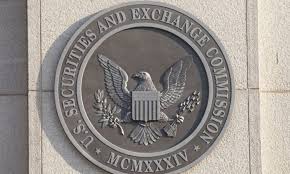SEC Launches Enforcement Action Against Cryptocurrency Company Ripple

Matt Stankiewicz, Managing Counsel at The Volkov Law Group, joins us for a posting on the SEC enforcement action against Ripple. Matt can be reached at [email protected].
In December 2020, three days before Christmas, the SEC filed a significant case against Ripple, the major cryptocurrency company. Ripple is a major cryptocurrency company, utilizing the technology to create a global digital payment network – an alternative to SWIFT. Ripple’s XRP cryptocurrency, at the time of the filing, was the third largest by market capitalization, behind only Bitcoin and Ethereum.
The SEC’s complaint charged Ripple, and two of its executives, Christian Larsen – co-founder, executive chairman of its board and former CEO – and Bradley Garlinghouse, the company‘s current CEO, alleging that they raised over $1.3 billion through an unregistered, ongoing digital securities offering.
The SEC’s complaint alleges that, starting in 2013, Ripple began to sell digital assets, known as XRP, as an unregistered securities offering. Ripple also used XRP in exchange for non-cash consideration, such as labor and market making services. Larsen and Garlinghouse also sold large amounts of XRP and personally earned $600 million.
The SEC complaint charges the defendants with violating the registration provisions of the Securities Act of 1933, and seeks injunctive relief, disgorgement with prejudgment interest and civil penalties. The SEC’s action is consistent with its position that cryptocurrency coin offerings may constitute “securities” under SEC regulations. The SEC’s interpretation is intended to ensure adequate financial disclosures to XRP investors and customers.

The SEC has brought actions against several other coin offerings but this is the most significant case yet. Some have suggested that the SEC’s delay in acting against Ripple and other cryptocurrency offerings is too little too late because of the lengthy delay in enforcement.
Additionally, many cryptocurrency companies are circumventing the initial coin offerings regulations by limiting their offerings under Form D procedures to “accredited investors,” which is a term that has been stretched to cover many investors and purchasers of cryptocurrency assets. Once sold to this smaller group of investors, the “accredited investors” quickly flip their investments to include retail investors and consumers, thereby facilitating a public offering.
If the SEC tightened its regulation of the “accredited investor” exemption to the public offering requirements in the cryptocurrency markets, future “offerings” would be required to comply with registration and disclosure requirements. The SEC’s regulation of Form D cryptocurrency practices is a significant loophole to the formal registration requirements.

The SEC brought an enforcement action against Kik Interactive in 2019, challenging Kik’s reliance on the Form D, “accredited investors,” exemption. The SEC argued that Kik did not conduct sufficient due diligence to determine if all its investors qualified as “accredited investors.” Kik did not attempt to determine if the investors intended to profit from their purchase or immediately resell and distribute the digital coin. The SEC and Kik eventually settled for $5 million.
Kik earned significant profits during the enforcement action from global sales of its cryptocurrency. A $5 million penalty was only a “cost of doing business.”















